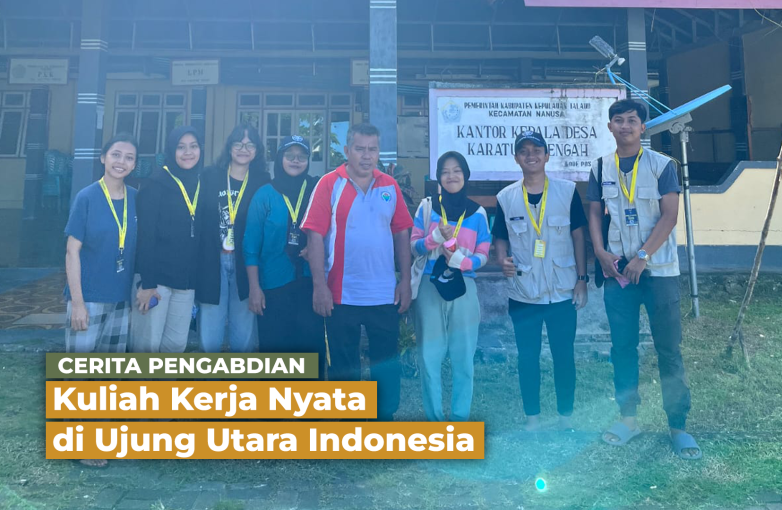
Real Work Lectures (KKN) have allowed students to apply the knowledge gained in lectures and contribute to community development. One of the inspiring stories came from Nata, a 2020 Agricultural Economics and Agribusiness Study Program student who underwent KKN in Nanusa District, Talaud Islands, North Sulawesi. Nata chose this location because she wants to explore remote areas in Indonesia and deepen her understanding of the various potentials that exist. Nanusa, an area at the northern tip of Indonesia directly bordering the Philippines, challenges Nata with all its uniqueness.
The theme promoted by the Nata KKN Team, “Optimizing the Potential of Tourism Villages Based on Eco-Cultural Tourism through Community Empowerment and Home Industry Development in Nanusa District,” is very relevant to field conditions in the area. This allows them to benefit not only the local community but also enrich their personal experience.
Amid the challenges of unique regional languages and dialects, Nata and her team did not give up. They chose to learn the local language and communicate intensively with the community so that the bonds they formed became stronger. Another obstacle is the need for an internet signal, which makes them dependent on communication via SMS and telephone. It turns out that these limitations would strengthen relationships between team members.
Nata’s work program involved all levels of society, including men, women, students, and children. From socializing the use of household plastic waste to establishing a Nature School, Nata and her team not only succeeded in attracting enthusiasm and active participation from the local community but also significantly impacted their lives.
During approximately 50 days in Nanusa, Nata experienced changes in the physical environment and significant personal growth. The experience of living together with teammates taught him about cooperation, patience, and persistence in facing various obstacles.
From Nata’s story, we learn that KKN is not just an academic assignment but a transformative service journey that reshapes one’s outlook on life. This profound experience is not only a preparation for the future but also a testament to the passion and dedication of Indonesian students in contributing to the progress of the nation, from the western tip to the eastern tip of the archipelago.
